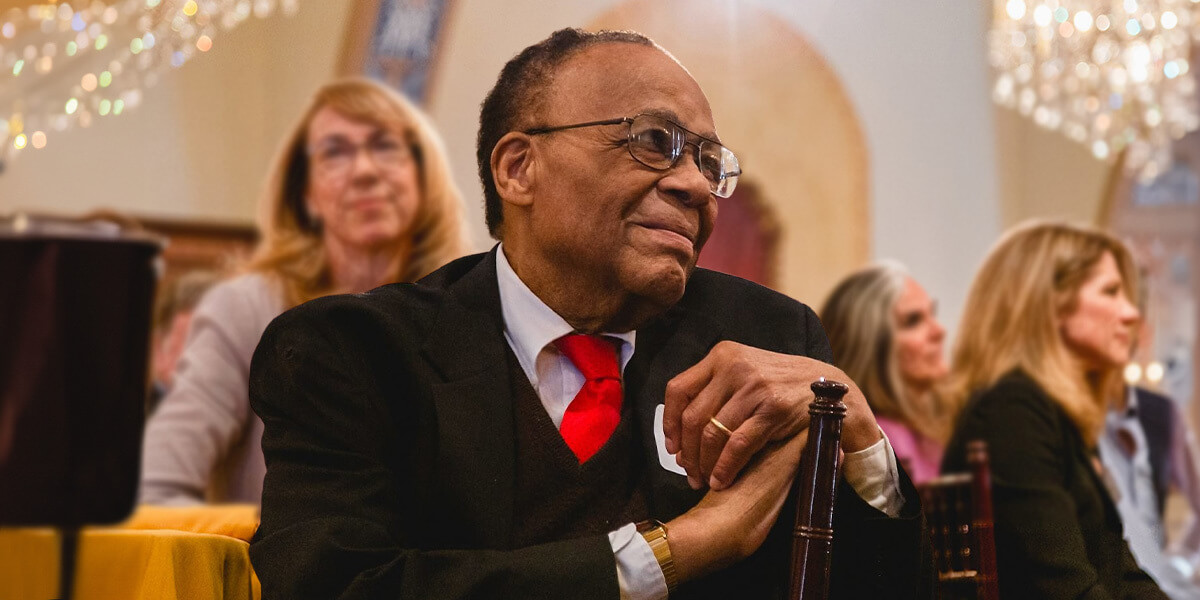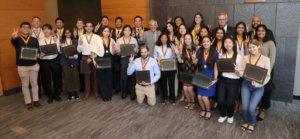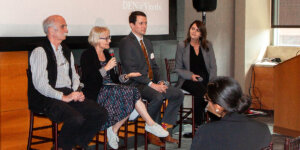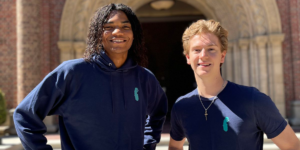
John Brooks Slaughter pictured here at the Pullias Lecture in 2019
John Brooks Slaughter, a distinguished leader in the fields of engineering, education, and leadership, passed away on December 6, 2023 at the age of 89.
His life, marked by a relentless pursuit of diversity, excellence and equity, came to an end after a courageous battle with cancer. Slaughter’s legacy is intricately woven into the fabric of the USC Viterbi School of Engineering and the USC Rossier School of Education, where he served as a University Professor Emeritus of Education and Electrical and Computer Engineering and played a pivotal role in shaping the narrative of inclusivity and excellence.
As the first Black director of the National Science Foundation (NSF), the first Black president of Occidental College, and the first Black chancellor of the University of Maryland, Slaughter’s life was a testament to the resilience and relentless commitment required to break down barriers. In 2010, he joined the USC Viterbi School of Engineering as a distinguished professor of engineering with a joint appointment at the USC Rossier School of Education, leaving an indelible mark on the university.
In a historic moment on September 20th, 2023, the USC Viterbi School of Engineering’s Center for Engineering Diversity (CED) was renamed the John Brooks Slaughter Center for Engineering Diversity, a fitting tribute to a man who spent his life championing the cause of diversity in engineering education. This renaming ceremony celebrated Slaughter’s pivotal role in reshaping the conversation about engineering, recognizing his tireless efforts to foster an inclusive environment for underrepresented minority students.
Slaughter’s commitment to diversity went beyond titles and accolades. Working closely with the Minority Engineering Program (MEP), established at USC in 1975, he laid the foundation for what would become the Center for Engineering Diversity in 1997. His engagement with students went beyond the academic realm, as he casually joined them for lunch, offering guidance on life, career and current events.
In 2011, Slaughter’s dedication took another meaningful turn as he collaborated with CED staff to establish a faculty advisory board, bridging the gap between students and faculty and fostering a sense of unity. His impact reverberated nationally when, in 2015, he played a key role in a session on engineering representation, resulting in a pledge by over 250 engineering schools to increase diversity — an effort that earned USC Viterbi the ASEE President’s award in 2017.
Born in 1934 in segregated Topeka, Kansas, Slaughter’s journey to become an engineer was marked by determination and resilience.
During an interview with USC Viterbi’s “Escape Velocity” podcast in 2020, he noted: “I tell people I used to tear my bicycle down once a week and put it back together again, to be doing something. And that’s what led me to be an engineer. In eighth grade, I said I want to be an engineer. People laughed at me not because I wanted to be an engineer, but they never seen a Black person who was an engineer.”
In high school, despite strong grades, his high school counselor suggested trade school over engineering school. Undeterred, Slaughter earned degrees in electrical engineering, including a Ph.D. in engineering sciences from the University of California, San Diego.
Slaughter’s impact extended far beyond his engineering achievements. In 1980, President Jimmy Carter appointed him as the director of the National Science Foundation, marking a turning point in his influence on science and engineering at a national level. His commitment to mentoring earned him the Presidential Award for Excellence in Science, Mathematics, and Engineering Mentoring in 2015.
In one of his poignant talks, Slaughter emphasized that diversity, without equity and excellence, is incomplete. The renaming of the Center for Engineering Diversity to honor him symbolizes a commitment to his vision — a vision that seeks to inspire future engineers to overcome adversity and uphold the principles of equity and excellence.
As we bid farewell to Slaughter, we reflect on a life well-lived, dedicated to breaking barriers and championing a more inclusive and equitable future for engineering. The John Brooks Slaughter Center for Engineering Diversity stands as a testament to his enduring legacy and a reminder that his impact will continue to shape the landscape of engineering education for generations to come.
Published on December 8th, 2023
Last updated on December 9th, 2023













